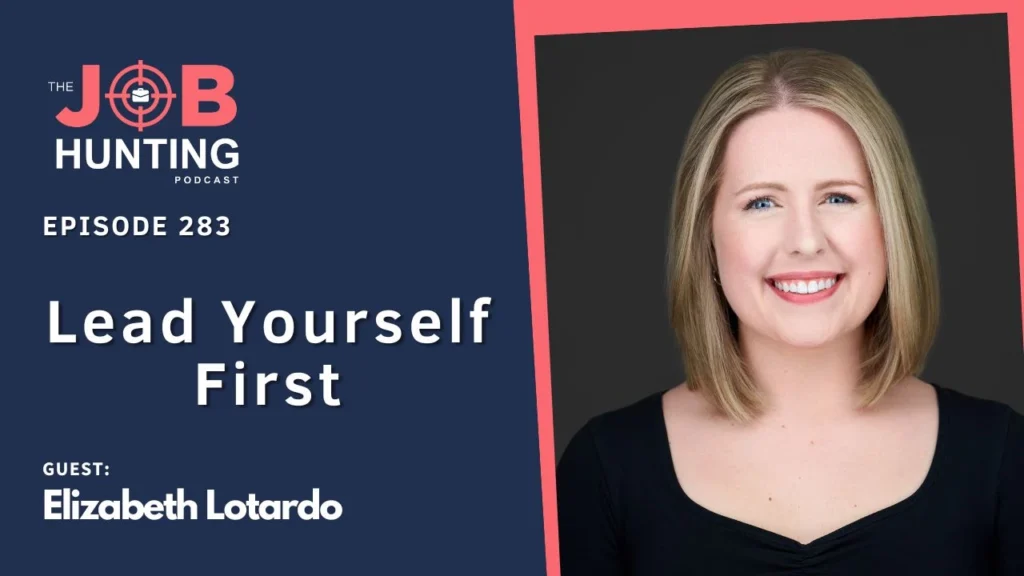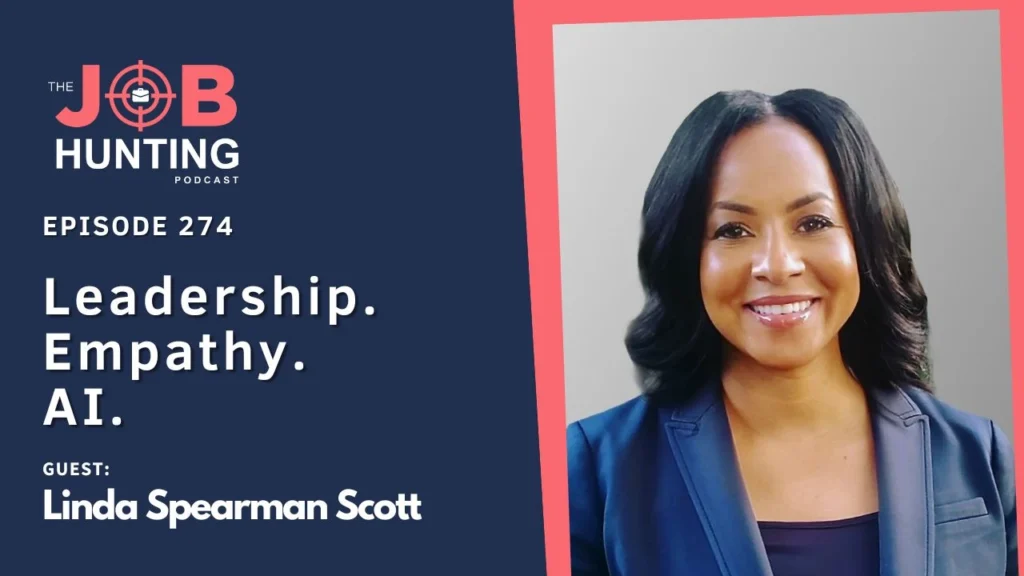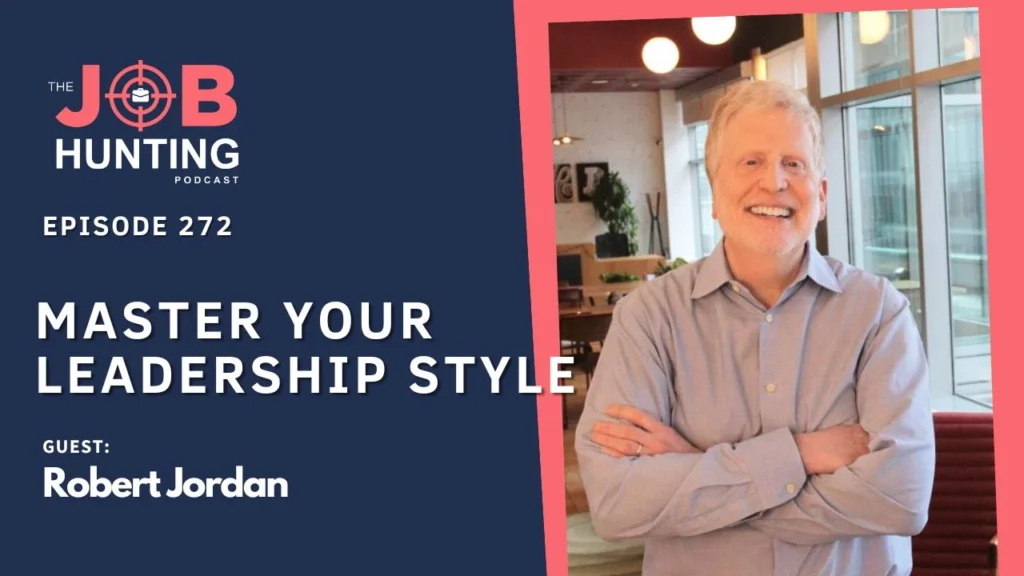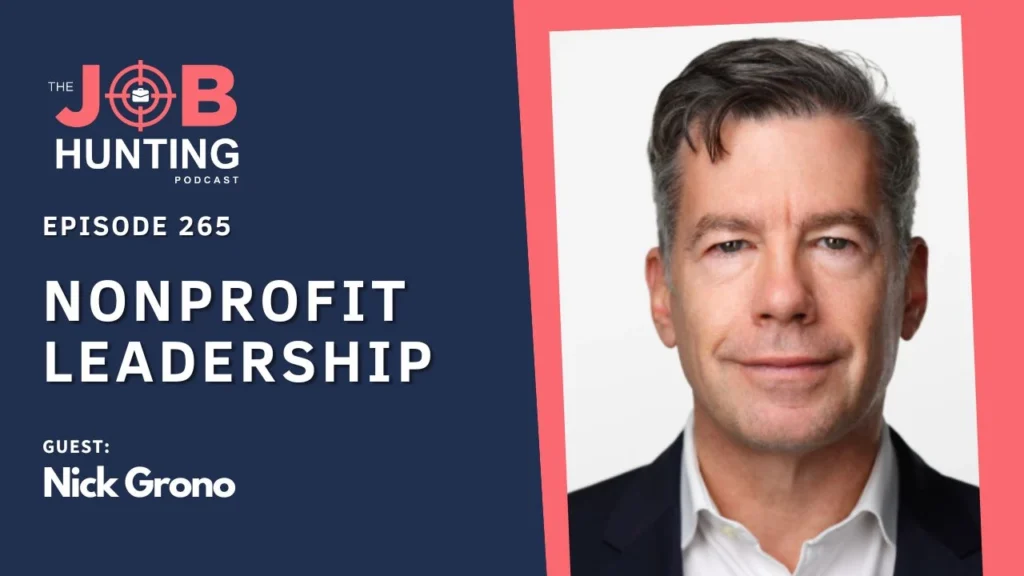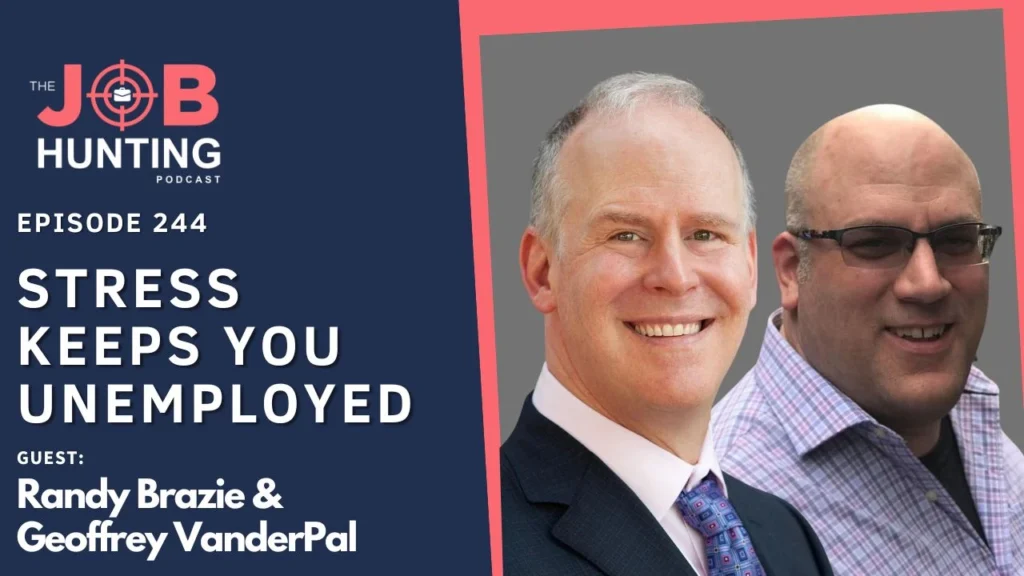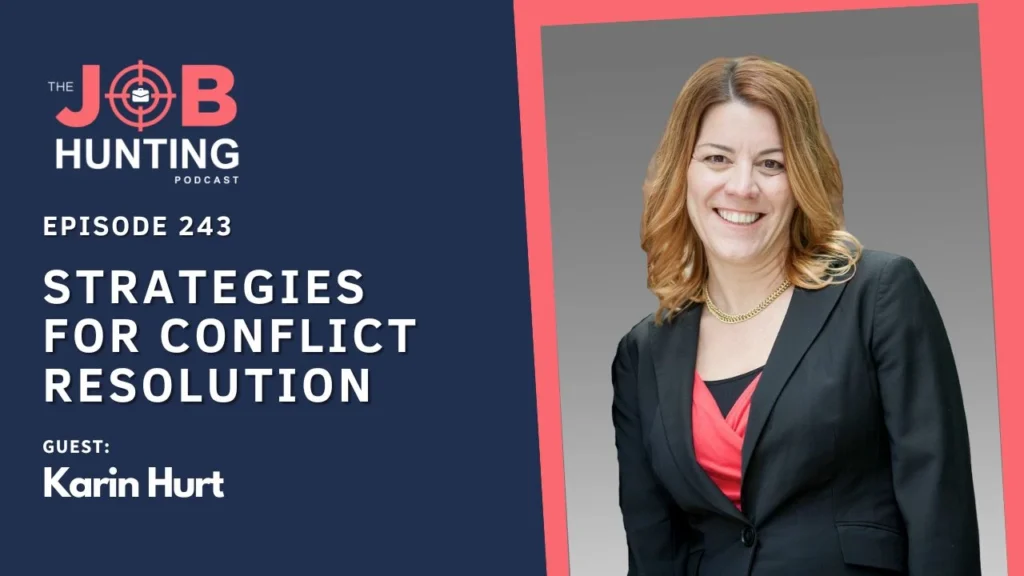Before we dive into our main topic, I want to talk to you about this show. I’ve been reflecting a lot and trying to understand you better so that we can have a better strategy for *The Job Hunting Podcast* and future episodes. This is really important to us, and I’ve been thinking a lot about the future of this podcast.
At times, we’ve even considered doing it as a series or releasing episodes every other week instead of weekly. But we realized that we should probably keep it as is—why change it when the team is winning? I just wanted to share some of the ideas and thoughts that are in my head and hope that some of you will reach out to me with any questions, either to reinforce those ideas or to offer further reflections for us to consider.
Here’s what I’ve learned about what you like about this show: the show focuses on providing you with insights for navigating the job market today. Now that we have over 250 episodes, it has truly become a resource for professionals. I’ve noticed that many people reach out to me to work with me after saying, “Oh, you know, I’ve listened to this old episode about three times, and it really resonated with me, so I decided to reach out.” So, I know people go back to the catalog, and I know that my ideal listener has materialized in you.
Most people who reach out to me after listening to the podcast are professionals in the corporate, nonprofit, and government sectors. The podcast really does help them navigate the job market and tackle challenges in their careers. It’s interesting because, while the podcast is available to everyone, it really speaks loudly to that niche that I work with—corporate, nonprofit, and government sector professionals. That’s where I want to stay; that’s my lane.
We now have a catalog of episodes covering a variety of topics, including resumes, networking, job interviews, salary negotiations, personal branding, and more. It also features interviews with industry experts and successful job seekers. Even though you tend to prefer the solo episodes—which I’m very flattered by, thank you so much—personally, I find the interviews invaluable because I learn so much from my guests, and it keeps things interesting for me. I get tired of doing solo episodes, so I think a mix of both is good for both of us.
Guest episodes provide real-life examples that can inspire you to develop actionable strategies. What I also like about those guest episodes is that they often validate some of my solo episodes. It’s not just me saying certain things; it’s me plus my guests also agreeing with me on certain points. Of course, guests don’t always have to agree with me, but I think I’ve been good at attracting a certain type of guest who tends to align with my perspectives.
Sometimes I worry about being repetitive, especially for those of you who have been listening for a long time. I also worry that I might be discussing strategies that are too advanced because I assume you’ve listened to previous episodes. But I think that’s a problem I’ll never fully resolve. Ultimately, I believe that if I were in your shoes, working in the corporate sector and thinking about my career, I would be seeking a voice I trusted. I would invest time in listening to podcast episodes consistently or working with a coach regularly. Over time, both the new content you learn and the repetition of key strategies will start making sense to you. You’ll begin testing these strategies in your career, seeing positive changes, achieving outcomes, and then repeating those successful patterns.
So, I do believe that investing in your career weekly by listening to this podcast is a great way to stay informed. And from time to time, you could step it up by investing in working with a coach like me or another coach, or by investing in a course—one of those that I run or something else—that will help you springboard to the next step if you’re feeling stuck. Sometimes that extra investment is necessary. But at the very least, listening to the podcast weekly is a great way to remain in control of your career, make plans, and start thinking about your career more regularly. Don’t just think about it at the end of the year on December 31st! Start landing roles that align with your goals, your purpose, and your strengths. That’s my hope for you.
So, yes, I just wanted to share these thoughts with you. If you agree or if you have any questions or comments that could help me help you, please reach out. If you have any questions you’d like me to address on the podcast, all you need to do is get in touch. If you subscribe to my newsletter, just reply back. We’re all professionals here; you’re all adults. I don’t want to make this a big deal, and I don’t think I want to survey you or anything like that right now. I just want those of you who really want to reach out to send a one-liner—that’s fine. You can also do that on social media if you don’t want to subscribe to my newsletter, though I do think that’s a pity because the newsletter is great, with content I don’t share anywhere else. I would love to hear from you.
Another thing I’ve been thinking about is how hard it is to be sick and still perform at work. I’ve been sick with a cold for two to three weeks now, and it’s a total bummer. I forgot how bad it is to try to work while sick. The last time I was sick, I had COVID in March 2023. I’m recording this in August 2024, so it’s been over a year and a half since I’ve been sick with a virus. My body is trying so hard to fight this virus—it’s not COVID, but something else that’s still pretty bad. It’s actually worse than the COVID I had a year and a half ago. And my brain just doesn’t compute; it doesn’t want to acknowledge that the body isn’t ready for work. I thought about tips for what to do when you’re sick and job hunting, or when you’re sick and trying to work and achieve something really big at work.
So, the first thing I thought of is, if possible, cancel or postpone. A lot of people don’t realize that they can actually have some control over the recruitment and selection process. If you’re not feeling well, chances are you’re not going to perform well. If you feel that intuition, okay? If you have that intuition of, “Oh my God, I’m just going through the motions; this isn’t really the best thing for me right now,” then trust it. The fact that many job interviews are now done online rather than face-to-face might make you feel like you have to go through with it because you’re not making anyone else sick and it’s so convenient for everyone. But if you’re sick, your brain and cognitive abilities aren’t at 100%. It’s really complicated.
I believe that if you can inform the recruiter, the HR person you’re in touch with, or the employer and say, “Look, I’m feeling very unwell; I came down with a cold. Can I postpone this?”—a lot of people don’t do this. I know this because I work with so many clients, and they’ve told me, and I’ve done this myself, where I just went for it because I felt like I wasn’t in control. I once interviewed James Brooks from Talent Predicts, one of the founders, a few years ago, and he said on the podcast—I’ll put a link to that episode below—that it’s really important to think about this. If you have any say in the matter, use it. Don’t think you don’t have any control. The worst thing that can happen is they say, “I’m sorry, we’re not able to change this.” In that case, you can ask, “What can I do to make this as easy as possible for you?” Sometimes there’s no way to change it, but most of the time, there is.
If I were an employer and someone called me saying, “Look, I’m really sorry, I feel very sick today. Is it possible to postpone?” I would say yes, 100%. But sometimes it’s also about the culture of the place, and I don’t want you to think that if people don’t move it, they’re bad people. It’s not always that.
Once, I did an interview with a full board of an organization for a CEO job, and I only noticed I was sick about an hour or two before the interview. I went for it anyway. I don’t know, I just felt like there was no way out. I had salmonella, by the way—this is a story I’ve told before on this podcast—and it was horrific. I was so, so sick. Apparently, no one noticed, but I knew I was unwell, and it was still a bit traumatic just to remember. I think you’ve had those situations in the past where you went through things even when you weren’t feeling 100%. But I want you to look back and think about the opportunities where you could have taken a stand, reached out,
and asked for something to be postponed or moved in a way that would help you—and you didn’t do it. I want us to take more control over our careers and start doing that more often.
I feel really bad for the Olympic athletes—we’re halfway through the Olympics as we record this—and I feel bad for some of the athletes who caught COVID in Paris. It’s heartbreaking because they’ve been waiting to play their best game and be in the Olympics, and then they’re back home sick, having to pull out of the competition. I know some of them went to compete while sick and won gold—there was one Australian athlete who did that. Sometimes we push ourselves because we see examples like that and say, “Oh, if they did it, we could do it too.” But no, it doesn’t work like that. Everyone is different. It’s okay for you to pull out, to postpone, to ask for support, and to ask for help.
Another thing I want to say for those of you who are working and feel really sick is to focus on the urgent and postpone the important. Urgent things cannot wait, and I understand that. Last week, I was looking at my list of clients and thinking about those who, for example, had an interview that week and urgently needed to talk to me. So, I kept those appointments. The ones that didn’t have anything urgent happening, we postponed. And I think that’s how it should be because I have to balance my abilities. Yes, my cognitive abilities aren’t 100%, but I can still help someone going through an urgent situation, like having a job interview tomorrow. But if I can take some time off to heal faster and postpone some of the important things that can wait a week or two, then I will do that. And that’s what I’ve done.
Finally, make a recovery plan so that you don’t feel anxious every day that you’re doing nothing. There were days when I was doing absolutely nothing, and you can feel a bit down about it. You can feel bad that you’re not being as active and high-performing as you normally are. So, I made a recovery plan. I went into my Outlook calendar and said, “All right, I’m going to give myself these days as very slow days—not a lot of work, only doing the urgent things—and then I’m going to recover.” This is what the plan is going to look like. I pulled out of a lot of things, and now, as you can hear from my voice, I’m still recovering.
Anyway, if you’re sick, I feel for you. Here in Australia, it’s very cold at the moment, so a lot of us are quite unwell. But even if you’re catching COVID up in the Northern Hemisphere where it’s summer and beautiful, it can still be a total bummer, so I feel for you.
Now, why did I decide to record this episode? I decided to record it because of a few events where it was so conspicuous that the top leaders in organizations really needed to have better communication to address what was going on and give all of us more trust in how they were handling the situation. And what can we learn as professionals, senior managers, and executives so that we don’t make the same mistakes, even if we’re not in the same large-scale, public positions where the whole world knows about it?
Look, we all make mistakes in a long career—it’s inevitable—but we can learn to deal with them better. So, let’s see how we can do that.
Let’s look at some examples. There are so many, which really surprises me because these examples are of things that could have been handled so much better if the CEOs had more training, if the communication teams were more mature, and so forth. We’re going to look at CEO communication failures, and it’s a mix of US and Australian examples.
I’m going to start with CrowdStrike and the U.S. Secret Service, right? The recent communication issues with the CEO of CrowdStrike, even though CrowdStrike is American, the CEO is actually Australian. The Secret Service’s handling of sensitive information and public statements, when done wrong, can severely damage trust and corporate reputation. It can cost jobs—not only the jobs of the top leaders you’ve seen on TV, but if the shares, like in CrowdStrike, collapse, it can also lead to restructures and redundancies over time.
Let’s look at CrowdStrike and the blue screen of death incident that happened last month, in July 2024—I think it was the 19th. It was a routine update for CrowdStrike’s Falcon sensor that caused chaos worldwide because it triggered the blue screen of death. I remember that blue screen of death! When I started at Monash University, I used to get it all the time. This faulty update affected millions of Windows systems globally, rendering many critical services inoperable, including in finance, aviation, and healthcare, leading to operational disruptions in many places and countries.
Then there was a live interview with the CEO, George Kurtz, where he appeared flustered and unprepared. People were questioning him about the incident, and he wasn’t providing the necessary explanations. He didn’t have the tone of voice that exuded confidence and leadership. He was stammering, and his responses were below par. This reaction then amplified public concern.
So, this is already a problem. If you’re not addressing it with confidence, inspiring trust in others that you��re handling it well, it shows that the company is not well-prepared. There is no confidence in how they’re going to handle this, and it just compounds into a snowball of crisis.
Then, in July, last month as well, we had an assassination attempt on former President Donald Trump during a campaign rally in Pennsylvania. The shooter managed to fire multiple shots from a nearby rooftop, injuring former President Trump and killing another person, causing chaos and distress. It was really dramatic, right? You would expect the Secret Service, then led by Director Kimberly Cheatle, to immediately address it. But what happened was that they faced immediate backlash because of their handling of the incident.
Key security lapses were identified, including a failure to secure the rooftop from which the shooter operated, and there was a delayed response by the Secret Service snipers who were positioned on site. This was caught on camera, leading to a Senate inquiry (or whatever it’s called in the US—we call it a Senate inquiry here in Australia). House Speaker Mike Johnson and lawmakers criticized Director Cheatle, called her explanations poor, and called for her resignation, arguing that her leadership style was lacking and that the agency seemed unprepared to deal with this.
This is an agency specifically trained to handle crises. If they seem unprepared, inadequate, and are not handling things properly, it undermines the entire institution of the Secret Service, right? The head of the Secret Service needs to inspire confidence whenever they speak out, and she failed to do that. Now we have her resignation, and she left the agency. There will probably be an audit and other consequences.
Are these unique problems? No. Have similar situations probably happened in your organization where you work? Yes. Have these situations happened throughout your career, with you or others involved? Probably yes. I wrote about this just a few months ago because, here in Australia, we had an outage from a telecommunications company called Optus. It was so severe and serious that our 911 services didn’t work. The CEO at the time, Kelly Bayer Rosmarin, faced intense scrutiny following that outage in November 2023. Her response was again perceived as reactive, lacking empathy, aggressive at times, and marked by misinformation and miscommunication about what was going on. And then, of course, she had to resign. It was a big ordeal for the whole organization. It wasn’t something that happened quickly; it took a couple of weeks, if not more, for her to understand that she had to leave the organization for its reputation to survive and rebuild.
Around the same time, our big supermarket chain here in Australia, Woolworths, faced backlash over price gouging. The CEO, Brad Banducci, was unable to manage an exchange with the media where he was asked about these issues, and he became quite aggressive, even getting up and leaving the interview. He is one of only two CEOs in a duopoly, and grocery prices are a huge topic of conversation in Australia. You would think it would be unwise for that CEO not to have a pitch ready when such issues are brought up. But he wasn’t prepared.
Then there’s Elon Musk and Twitter. His erratic communication and behavior have been highly correlated with stock prices and the volatility of issues affecting not just Twitter, but also Tesla and his other businesses. It really affects the business because of his persona and how he communicates with the public.
Many years ago, I think it was back in 2016 or 2017, there was an incident with United Airlines and then-CEO Oscar Munoz. I don’t know if you remember this, but someone was removed from an overbooked flight. It’s such a non-issue in the sense that these things happen so often. What made it worse and turned it into a global public relations disaster was that the CEO’s initial response was defensive and lacked empathy for the person involved, as well as for the public. It was yet another reputational hit for United Airlines in an issue that could have been handled so much better.
All of these issues, some as serious as an assassination attempt and others as minor as someone being removed from an overbooked flight, highlight that the issue is not the issue—it’s how you handle it that becomes the issue. It becomes bigger because of how it’s handled.
In Australia, we had another case, and I think this will be my last example, but I just remembered it. The Australian Post had a CEO who decided to award top executives with watches. It was a matter
of knowing how to explain this, but she handled it so badly that she lost her job. The issue became so much bigger than it was—it wasn’t that big a deal, but maybe apologizing or explaining that it was a tradition or that these things happen in organizations from time to time would have helped. But no, she handled it with a lack of transparency, which further damaged the organization’s reputation, and she had to leave.
Most of the time, the reason why CEOs handle crisis communication so badly is because of a lack of empathy. Now, empathy is something people don’t typically associate with leadership, but it is crucial. Empathy is the ability to understand and share the feelings of others. When you’re a top leader, you have to work to bring out the best in others, and recognizing others’ emotions, seeing situations from their perspective, and responding with care and understanding are crucial. It’s an important trait for leaders. It fosters trust in you, improves communication between you and your team, and enhances team collaboration.
So, building empathy builds trust, and building trust builds reputation and rapport. Leaders who are good at demonstrating empathy as their first response—rather than reacting with a fight-or-flight response that is defensive and aggressive—can avoid many pitfalls. When you feel threatened, your intuition is to fight or flee, which activates aggressiveness in you. And that’s fine; fight-or-flight isn’t entirely bad—it’s survival for us. But what’s happening here is that the public isn’t the enemy. The issue is the enemy, and the aggressiveness in how you resolve the situation should be directed at the issue. That’s what crisis management is all about—quickly engaging in a military-style operation to fix the problem completely. The aggressiveness should never be directed at the communication itself. That’s such an easy thing to address—all you need is training, right? All you need is communication and training.
So, when you direct empathy toward communication and channel aggressiveness into resolving the issue, you develop trust in leadership and in the organization as a whole. This trust encourages more open communication, so you can resolve the issue even further with the public’s help. It fosters a supportive work environment—empathy helps leaders understand team dynamics and individual challenges, leading to more rapid problem-solving because communication channels are flowing smoothly with no blockages.
It also improves conflict resolution because empathetic leaders are better equipped to navigate conflicts by understanding the underlying issues. Your ears are open—you’re not blocking yourself. You’re addressing everything with sensitivity. You’re in listening mode when you communicate, so you can then read body language and address things in tune with your audience. Empathy also boosts employee engagement and retention. Over time, especially in situations where crises occur repeatedly—such as during mergers and acquisitions, restructures, a startup’s growth spurt, or a big enterprise-wide transformation—employees who feel understood and valued during difficult times are more committed to staying at work. They understand that this is a phase, part of the ebbs and flows of the organization, and this reduces turnover rates, even during challenging times.
So, how can you activate empathy if you haven’t been paying attention to your empathetic abilities? The first practical step is active listening—focusing on the speaker without interrupting. Many times, when I watch interviews with CEOs during crises, the biggest mistake I see is interruption. The speaker is already talking over the interviewer before they’ve finished their question. There’s no focus on the speaker—only on delivering a message without the collaboration between the speaker and the listener. The speaker isn’t listening at all. Reflecting on what’s being said, paraphrasing, and summarizing to show understanding are also important.
This is crucial during team meetings, when listening to communities, stakeholders, shareholders, and more. Paraphrasing and summarizing what they’ve said, and then addressing those points with your strategies, helps create a dialogue where you listen again and keep the conversation going.
Taking time to gain perspective is another important aspect. As a coach, I do this a lot when people come to me, often job-seeking for a long time or just stuck. They seem to have only their perspective on the situation. Part of my coaching involves bringing in the perspectives of others—the recruiter’s perspective, for example, or what the employer is trying to achieve and how they think and make decisions. Regularly putting yourself in others’ shoes is crucial for understanding their viewpoint so you can better address them. Consider how you would feel in their situation and how their experiences might shape their reactions.
For example, in job searching, how would you feel if you were a recruiter with a very small base salary and most of your income came from commission? How would you feel if you lost a good person on your team and had to replace them, but there was no one quite like that person on the market? Now you have to find someone else. How would you feel if you had to choose between three or four great candidates, not knowing for sure which one is the best for your team and organization? How would you make that decision? All of this, putting yourself in others’ shoes, helps immensely when you’re trying to communicate with them.
Another thing that can help is meditation. Whenever you have time during a crisis—though chances are you won’t be sleeping well because of the high adrenaline—finding five, ten, or fifteen minutes for mindfulness exercises can be beneficial. It could be deep breathing, meditation, or guided meditation. I’m a big fan of Headspace, for example—it’s a paid app, but there are free ones as well. Find something that will help you rein in your emotions and nervous system so that you don’t flood your body with cortisol and adrenaline. If you can practice being present and in the moment with meditation and other activities like deep breathing, it will really help your ability to connect with others.
Some people say you can map empathy—visualizing and understanding others’ emotions, thoughts, and experiences in a more visual way by mapping it out. I haven’t tried that myself, but I wanted to share it with you. Many people tell me they’re more visual learners, so if it helps you to put pen to paper and write down the emotions you think others are feeling, it could be a quick and helpful exercise even if you’re in a hurry and it’s a big crisis. If you can write down, for example, that it’s a big blue screen disaster and people can’t fly, get home, get to work, or access healthcare—whatever it is that’s affecting aviation and health—write down how they might be feeling. It makes it easier for you to know how to address that in your communication style.
There are also lots of interesting books on this topic. The most famous one, for sure, is *Emotional Intelligence* by Daniel Goleman, which is very good. Another is *Empathy: Why It Matters and How to Get It* by Roman Krznaric. I’ll include links to these books in the episode show notes if you’re interested in reading more. If you feel like empathy is your superpower and you want to enhance it, definitely read these books because it can really be the reason people think of you and hire you. But if you also think that you’re in a situation as a professional where you could be put on the spot, this is a muscle you might need to exercise—emotional intelligence and empathy.
Okay, so I want to start summarizing now. I want you to think about where you are in your career and if there’s any chance you’ll have to deal with a crisis. I remember when I—can you believe I once wanted to be a civil engineer? I studied civil engineering at uni for two and a half, three years. I remember being completely shaken and quite scared by—I can’t remember what course it was, maybe legal studies or something—where we studied all these horrible cases of buildings and bridges collapsing, people being killed. It was terrifying! I had never thought of that before, and it really scared me. I wonder if that was the reason why I dropped out.
But whatever situation you find yourself in today, think about the things that could go wrong and how you could be prepared to address them. Be prepared and informed. It’s important to have your own personal crisis management plan ready to go. Then, think about communication training. I’m a big advocate for professionals to take control of their careers and not wait for employers to tell them what to do. If you think it’s important to learn how to communicate better, go for it. You can talk to me—much of the coaching I do is about communication because part of job searching is learning how to communicate about yourself. It follows similar recipes and frameworks that help you engage with your audience. And if you’re in a big role where you’re the spokesperson for a team, department, or organization, this should be a requirement for you.
Think about clear messages you could deliver even when things are chaotic. These should be concise, crisp, and clear messages that would roll off your tongue and be ready to address the situation when people rely on you.
Then, practice and rehearse. I’ve done communication training throughout my career because of the types of roles I’ve had, so I feel very comfortable communicating. But I know many people have never had this training, so they don’t understand the importance of practice and rehearsal. I see this all the time—people are silent and quiet, get a job interview, and go into it without practicing or rehearsing. Then, in the interview, anxiety levels are high, adrenaline and cortisol are high, and they enter fight-or-flight mode. Cognitive abilities decrease, and they forget everything they wanted to say. As soon as they walk out of the interview, they remember everything again. So unless you practice and rehearse, you won’t be able to perform at that competition stage or in crisis mode. Think about Olympic athletes—they practice and rehearse not only the physical aspects of their
sport but also mentally. At that top level, these athletes are amazing. Their physicality is on par with their peers, but at that stage, it could be just as much of a mind game. I want you to be ready by practicing and rehearsing.
Build yourself a strong board, a strong advisory team. You should have a mentor, supportive colleagues, friends and family, and maybe a coach from time to time. This advisory team should be people you can call on when you need them. For example, even if a client of mine has worked with me, found a job, and then something urgent happens, they can call me and I’m here for them. It’s important to have an advisory team, and I feel privileged to be part of their team.
Understand your audience. Tailor your message to different types of stakeholders’ concerns—it’s not always going to be the same. And build media relationships. Depending on your job, developing positive relationships with the media is super important. They’ll come to you less aggressively, and they’ll seek your advice and intelligence as well—sometimes you can share that, and sometimes you can’t. But those relationships will really help you over time.
Thank you so much. If you’re a professional facing career challenges or crises in your job, visit my website. If you want career coaching or just want to look at more resources that could help you, or if you want a coach to support you who is ready to engage with you and address those really important issues in your career, I’d be delighted to work with you.
Thank you so much for tuning in to this episode. As I’ve said, my aim with this podcast has always been to educate you on the importance of investing in your career in a variety of ways, bringing new topics that we revisit and addressing old topics to bring more awareness to the importance of focusing on your career and developing it over time. Working with a coach from time to time will help you achieve your goals.
Don’t forget to subscribe to this podcast if you haven’t done so yet, leave a review, and share this episode with your network—there could be someone who would benefit from the information shared here today. Join me next week as we explore yet another subject. Who knows what it will be? I don’t know yet, but I’ll let you know ASAP.


